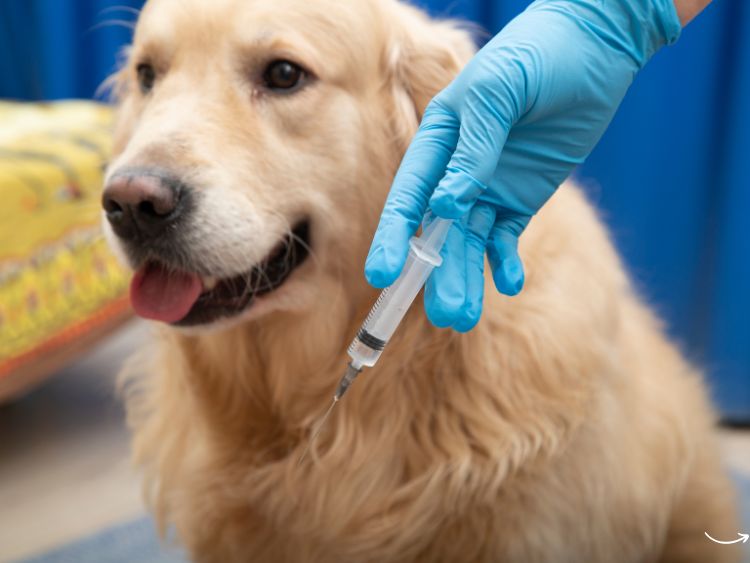Owning a dog is a joyful experience filled with wagging tails, slobbery kisses, and endless companionship. But, it also comes with responsibilities, one of the most crucial being ensuring your furry friend is healthy and protected against diseases. That’s where a dog vaccination card comes into play. This essential document is more than just a piece of paper; it’s a testament to your dog’s health and safety. So, what exactly is a dog vaccination card, and why is it so important? Let’s dive in and uncover everything you need to know.
What Is a Dog Vaccination Card?
A dog vaccination card is a record that details all the vaccinations your dog has received. It typically includes:
- Dog’s Identification: Name, breed, age, and sometimes a photo.
- Owner’s Information: Your name and contact details.
- Vaccination Details: Type of vaccine, date of administration, and the veterinarian’s signature.
This card serves as an official document confirming your dog’s vaccination history, which is vital for various reasons we’ll explore.
Why Is a Dog Vaccination Card Important?
Ensuring Health and Safety
First and foremost, the dog vaccination card ensures that your pet is up-to-date with all necessary vaccines. These vaccines protect against deadly diseases such as rabies, parvovirus, and distemper. Without them, your dog is at risk of contracting these illnesses, which can be fatal.
Legal Requirements
In many places, having a dog vaccination card is a legal requirement. For instance, proof of rabies vaccination is often mandatory. Failing to present this card can result in fines or other legal consequences. It’s not just about avoiding penalties; it’s about ensuring public safety as well.
Travel and Boarding
Planning a trip and thinking of taking your furry friend along? Or perhaps you need to board your dog at a kennel? Most airlines and boarding facilities require proof of vaccination. Your dog vaccination card serves as this proof, making travel and boarding hassle-free.
Veterinary Visits
When you take your dog to the vet, the vaccination card helps the veterinarian keep track of what vaccines have been administered and when. This information is crucial for planning future vaccinations and treatments.
Types of Vaccines Included in the Dog Vaccination Card
Core Vaccines
Core vaccines are essential for all dogs due to the severity of the diseases they prevent. These include:
- Rabies: Protects against the deadly rabies virus.
- Distemper: Prevents a highly contagious and often fatal viral disease.
- Parvovirus: Guards against a virus causing severe gastrointestinal illness.
- Adenovirus: Protects against hepatitis and respiratory infections.
Non-Core Vaccines
Non-core vaccines are recommended based on the dog’s lifestyle and risk factors. These include:
- Leptospirosis: Recommended for dogs exposed to wildlife or contaminated water.
- Lyme Disease: Important for dogs in areas where ticks are prevalent.
- Bordetella (Kennel Cough): Necessary for dogs that are frequently boarded or participate in social activities like dog parks.
How to Obtain a Dog Vaccination Card
From Your Veterinarian
The most common way to get a dog vaccination card is through your veterinarian. After administering each vaccine, the vet will update the card with the relevant details.
Online Services
Some online services allow you to create and maintain a digital vaccination card. These platforms can be handy for keeping all your dog’s health records in one place.
Vaccination Clinics
If you attend a vaccination clinic, they will also provide a vaccination card. Ensure that all information is accurately recorded.
Keeping Your Dog Vaccination Card Updated
It’s crucial to keep your dog vaccination card updated. Here’s how you can ensure it stays current:
- Regular Vet Visits: Schedule regular veterinary appointments to keep up with vaccination schedules.
- Record Keeping: Always check the card after each vet visit to ensure all details are correct and up-to-date.
- Digital Copies: Maintain a digital copy of the card to avoid losing it.
FAQs
What happens if I lose my dog’s vaccination card?
If you lose your dog’s vaccination card, contact your veterinarian. They can provide you with a new one based on their records.
Can I travel internationally with my dog’s vaccination card?
Yes, but international travel often requires additional documentation and specific vaccinations. Always check the requirements of the destination country well in advance.
How often should my dog be vaccinated?
The frequency of vaccinations varies. Core vaccines are typically administered annually or triennially, while non-core vaccines may have different schedules. Your veterinarian can provide a tailored vaccination plan.
Is a dog vaccination card the same as a pet passport?
No, a dog vaccination card is specifically for recording vaccinations, while a pet passport includes additional information required for international travel, such as microchip details and health certificates.
Are there any side effects to vaccinations?
Most dogs experience mild side effects such as slight swelling at the injection site or mild lethargy. Severe reactions are rare but can include allergic reactions. Always monitor your dog after vaccination and contact your vet if you notice any concerning symptoms.
Conclusion
A dog vaccination card is more than just a record; it’s a vital document that ensures your pet’s health and safety. From legal requirements to travel needs, this card plays an essential role in your dog’s life. Keeping it updated and handy is a small task that goes a long way in protecting your furry friend. So, next time you visit the vet, make sure to check your dog vaccination card and keep it up-to-date.
For more information, check out these authoritative sources:
- American Veterinary Medical Association: www.avma.org
- Centers for Disease Control and Prevention: www.cdc.gov
- World Small Animal Veterinary Association: www.wsava.org
By staying informed and proactive, you can ensure a long, healthy, and happy life for your beloved pet.
